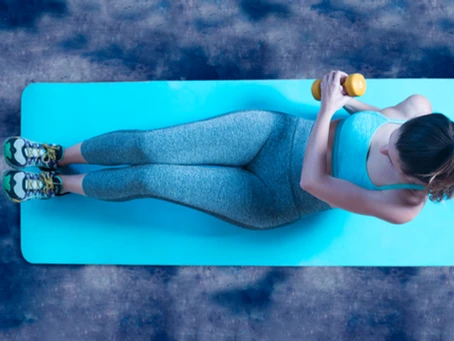(5 minute read)
Hi! Dr. Colleen here from Be Ready Performance Therapy.
If you missed it, Braley and I recently recorded a podcast episode that introduces you to Pelvic Health PT and frequently asked questions during a Pelvic Health PT session. If you don’t have time to listen to the episode, I created a summary for you!
What is Pelvic Health PT?
I’ve been practicing Pelvic Health PT for four years now with an emphasis on pregnant and postpartum care. These are some of the most common questions I get from patients during our time together in the clinic and I wanted to share!
First I want to ensure you understand what Pelvic Health PT means. Pelvic Health is a specialty within PT that requires many hours of continuing education after finishing Physical Therapy school. Pelvic Health includes “nipple to knee” anatomy with special attention on the bowel, bladder, and sexual health as it relates to your back, hips, abdomen, and pelvic floor muscles. Pelvic Health therapy can help with pelvic pain, urinary leakage or urgency, constipation, and much more. Specifically, at Be Ready PT, we can also help people maximize their fitness and athletic performance related to their pelvic health.
Most FAQs:
- So, do men have pelvic floors too?
Yes! Male and female anatomy is very similar. There are a few differences in how the parts develop but pelvises with penises and pelvises with vaginas both have pelvic floor muscles that allow you to poop, pee, and participate in sexual activity. - Is it normal to pee in the shower?
Peeing in the shower is not necessarily a bad thing. If you are having urinary leakage or struggling with urinary urgency related to water, it may be a good idea to stop peeing in the shower. “Water triggers” mean that when you get in the shower, in a pool, or put your hands under running water you start to feel a strong urge to pee. If that is the case I would start working on not peeing in the shower and instead try to empty your bladder right before you get into the shower. Suppose this doesn’t work and you are still experiencing water triggers and urinary leakage. In that case, it may be a good idea to see your general medical provider and/or a Pelvic Health therapist. - Is it okay that I hover over the toilet to pee?
The best choice would be to sit on the toilet to pee when you can. If you have urinary leakage symptoms or feel like you are not emptying your bladder completely, sitting on the toilet is the best position for your pelvic floor muscles to relax and your bladder to empty. We get it, sometimes toilets are gross. So every once in a while if you hover over the toilet that is okay but if you find yourself doing it daily, weekly, or every time you go outside of your house AND you have urinary leakage or urgency symptoms, I recommend sitting. You can buy clear plastic covers for the toilet seats or carry sanitizing wipes in your purse or bag to wipe the toilet seat before you sit. - I’ve always strained to have bowel movements, is that bad?
Straining for a bowel movement involves holding your breath and bearing down. If straining for bowel movements is your “normal” and you have pain with bowel movements regularly, I suggest seeing your medical provider and/or a Pelvic Health therapist for further screening. Over time, repetitive straining with bowel movements can lead to hemorrhoids and other pelvic health dysfunction. It is best for your pelvic health to practice deep belly breathing and open mouth breaths during bowel movements. - What is a squatty potty?
A squatty potty is a brand name for a stool that can be used to assist you with bowel movements. You can buy a squatty potty or a 6-7 inch stool. You put both feet on the stool during your bowel movements to relax your puborectalis muscle and help you have an easier, strain-free bowel movement. - Should sex hurt?
NO! 100% NO. If sex hurts for you (penetrative, oral, or masturbation) please seek care from your general medical provider and/or a Pelvic Health therapist. It is not “normal” for sexual activity to be painful. There are many reasons why sex can be painful and it is important to speak with a medical provider who can help figure out why you have pain with sexual activity. - So is it true that I have a small bladder?
Your bladder is designed to hold a certain amount of fluid. Sometimes, when we empty our bladders too often, our bladders start to interpret half full as full. Then your brain is tricked into thinking you need to pee more than you actually do. There is no evidence to suggest some people have a small, medium, or large bladder. Instead, a Pelvic Health therapist can help you work on your bladder habits and create a pee schedule that allows you to go 2-5 hours without peeing. If you struggle with urinary leakage or peeing too frequently or too little, consider seeing a Pelvic Health therapist.
If any of these topics hit close to home for you or after reading you think you may need to see a Pelvic Health PT, email me at colleen@bereadypt.com or schedule a call with me from our website to discuss your symptoms.
Sincerely,
Be Ready Performance Therapy


